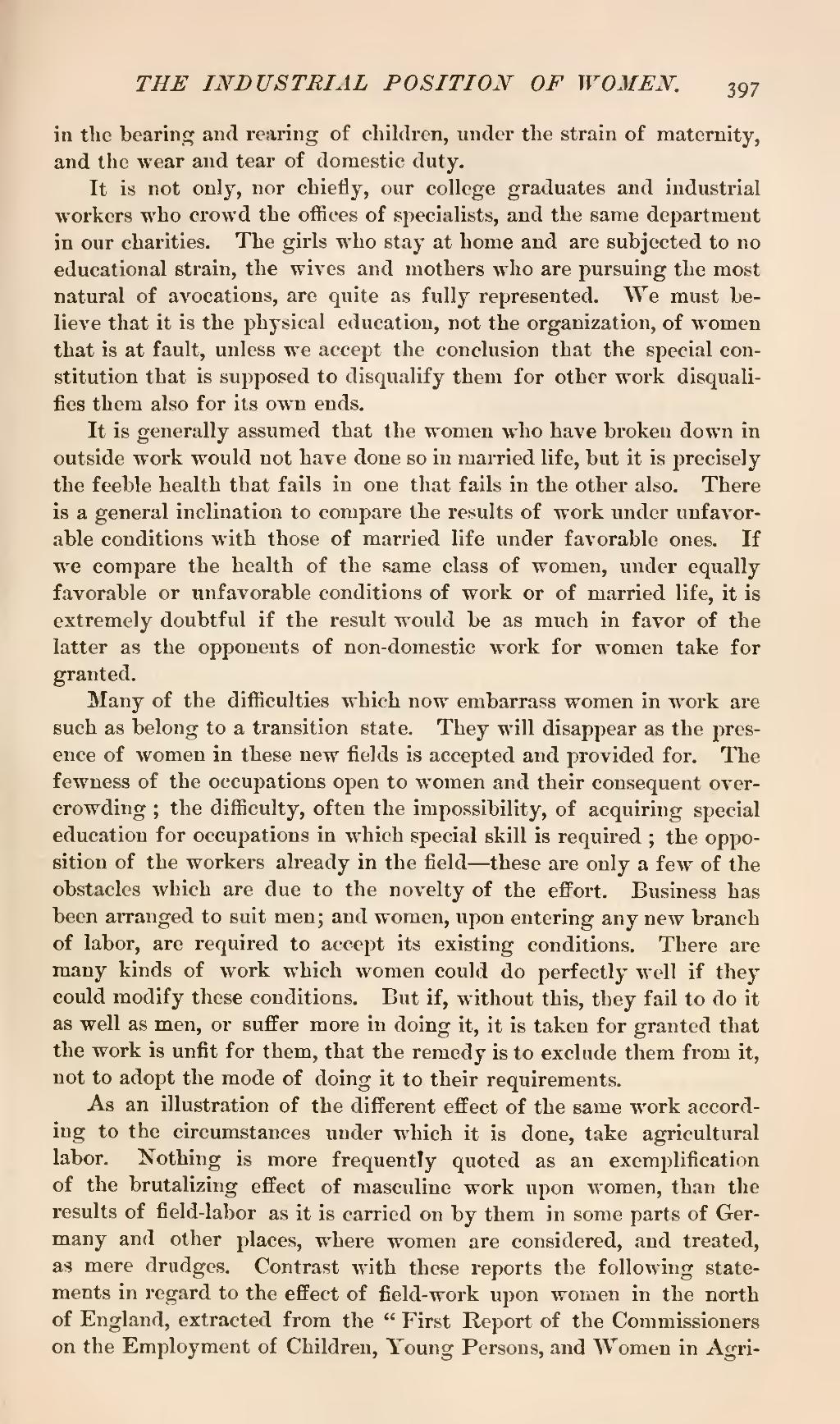in the bearing and rearing of children, under the strain of maternity, and the wear and tear of domestic duty.
It is not only, nor chiefly, our college graduates and industrial workers who crowd the offices of specialists, and the same department in our charities. The girls who stay at home and are subjected to no educational strain, the wives and mothers who are pursuing the most natural of avocations, are quite as fully represented. We must believe that it is the physical education, not the organization, of women that is at fault, unless we accept the conclusion that the special constitution that is supposed to disqualify them for other work disqualifies them also for its own ends.
It is generally assumed that the women who have broken down in outside work would not have done so in married life, but it is precisely the feeble health that fails in one that fails in the other also. There is a general inclination to compare the results of work under unfavorable conditions with those of married life under favorable ones. If we compare the health of the same class of women, under equally favorable or unfavorable conditions of work or of married life, it is extremely doubtful if the result would be as much in favor of the latter as the opponents of non-domestic work for women take for granted.
Many of the difficulties which now embarrass women in work are such as belong to a transition state. They will disappear as the presence of women in these new fields is accepted and provided for. The fewness of the occupations open to women and their consequent overcrowding; the difficulty, often the impossibility, of acquiring special education for occupations in which special skill is required; the opposition of the workers already in the field—these are only a few of the obstacles which are due to the novelty of the effort. Business has been arranged to suit men; and women, upon entering any new branch of labor, are required to accept its existing conditions. There are many kinds of work which women could do perfectly well if they could modify these conditions. But if, without this, they fail to do it as well as men, or suffer more in doing it, it is taken for granted that the work is unfit for them, that the remedy is to exclude them from it, not to adopt the mode of doing it to their requirements.
As an illustration of the different effect of the same work according to the circumstances under which it is done, take agricultural labor. Nothing is more frequently quoted as an exemplification of the brutalizing effect of masculine work upon women, than the results of field-labor as it is carried on by them in some parts of Germany and other places, where women are considered, and treated, as mere drudges. Contrast with these reports the following statements in regard to the effect of field-work upon women in the north of England, extracted from the "First Report of the Commissioners on the Employment of Children, Young Persons, and Women in Agri-
